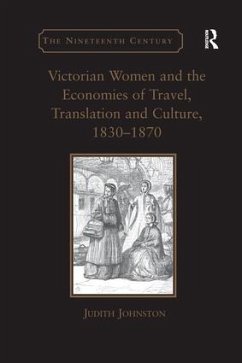
Anglophone Indian Women Writers, 1870-1920
Versandkostenfrei!
Versandfertig in 1-2 Wochen
188,99 €
inkl. MwSt.
Weitere Ausgaben:

PAYBACK Punkte
94 °P sammeln!
Brinks examines the work of Toru Dutt, Krupabai Satthianadhan, Pandita Ramabai, Cornelia Sorabji and Sarojini Naidu. These women are deeply rooted and connected to both South Asian and Western cultures and found large audiences in their public roles as writers, reformers, activists and cultural translators. Informed by extensive archival work, Brinks's close readings of their literary writings suggest new ways of understanding a range of issues central to feminist postcolonial studies.













